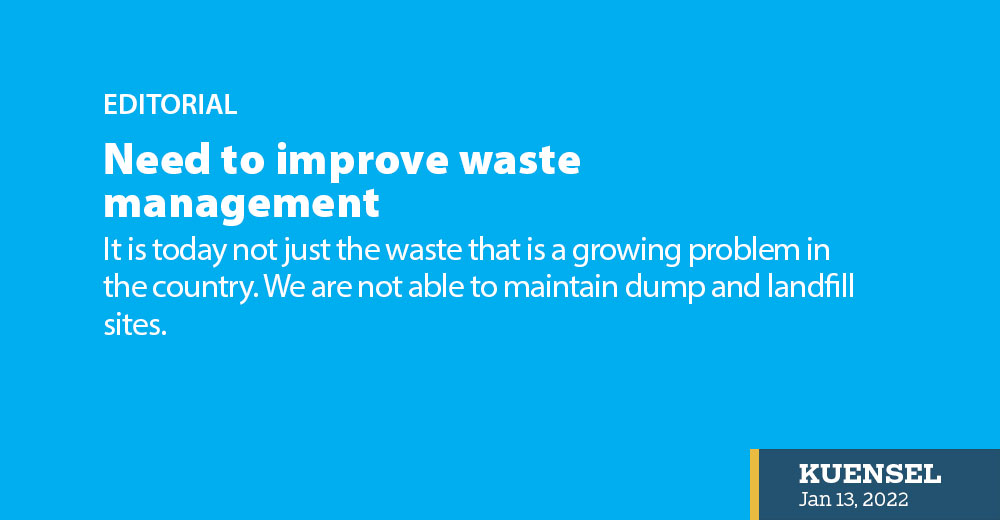It is today not just the waste that is a growing problem in the country. We are not able to maintain dump and landfill sites.
The Memelakha landfill is an example of poor management.
National Waste Management Flagship Programme, launched in 2020, is expected to address the problem with the construction of sanitary landfill in dzongkhags and thromdes. Unlike current landfill sites, the sanitary landfills will have proper linings, leachate collection and treatment facilities and vents for the safe release of methane gas, among others.
But while we wait for sanitary landfills, the production of waste is growing, especially in the major population centres. And Bhutan’s aim is to achieve Zero Waste Bhutan by 2030 by reducing waste going to landfills to less than 20 percent and improving waste management service delivery.
No doubt it is going to be a huge challenge. As some in the sector say technology to manage waste will not be enough; there should be radical behavioural change among the people. Some societies abroad have been able to recycle over 80 percent of waste. For such changes to occur in Bhutan, we should go beyond cleaning and advocacy campaigns, as important as they are.
According to the flagship programme document, source segregation, collection, recovery, treatment and safe disposal facilities will be installed and education and communication techniques will be improved to encourage behavioural change among the people.
What we must bear in mind is that we are small and our problems are small, too. More than half of the country’s population lives outside of the growing towns and cities. Yet waste is a growing problem. Left as it is, we would soon be buried under the problem of mounting waste.
At a time when Bhutan is being increasingly recognised as an environment-conscious country, the amount of waste flying around is ironic and embarrassing.
Waste is an issue of serious concern today not because a large number of our people are uneducated. It is a problem because we could not instil in our people a culture to care.
Mindless disposal of waste should be considered a serious crime if we are to effect a serious and noticeable change in waste management. To address the problem of waste in Bhutan, fines and penalties will work—the heavier the fines, the cleaner the towns and cities will be.


